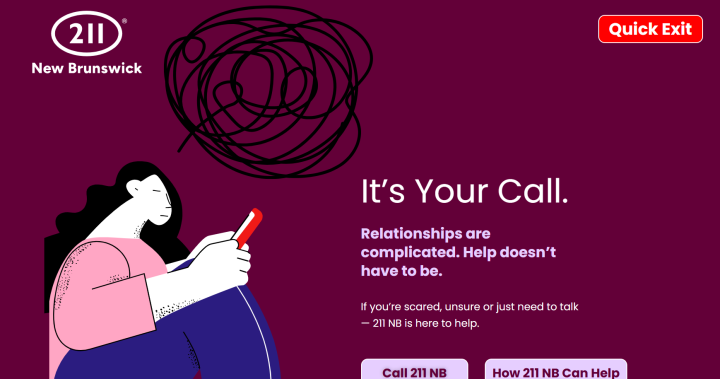In a significant advancement for support services in New Brunswick, the province has officially integrated specialized gender-based violence resources into its 211 information system. This critical expansion, unveiled Thursday, transforms the existing helpline into a comprehensive lifeline for survivors seeking immediate assistance and long-term support options.
The enhanced service now connects callers with trained specialists who can navigate them toward appropriate resources, whether they need emergency shelter, counseling services, or legal guidance. This development comes as part of a broader initiative to address the troubling reality that gender-based violence remains persistently high across Canadian provinces.
“When someone experiences gender-based violence, knowing where to turn can be overwhelming,” explained Social Development Minister Jill Green during the announcement. “The expanded 211 service ensures that with just one call, New Brunswickers can access the specific support they need during what is often the most vulnerable moment of their lives.”
The province’s 211 service, which has operated since October 2020, has established itself as a trusted community resource, fielding approximately 17,000 calls annually. The gender-based violence expansion builds upon this foundation, creating a more specialized approach to what officials recognize as a distinct social challenge requiring dedicated resources.
What distinguishes this service is its accessibility—available 24/7, completely free, and offered in both official languages. The confidential nature of the calls provides an additional layer of security for those concerned about privacy when seeking help.
The initiative represents a collaborative effort between the provincial government and the New Brunswick Women’s Coalition, demonstrating how public-private partnerships can effectively address pressing social issues. The coalition’s executive director, Beth Lyons, emphasized the helpline’s importance in connecting survivors with “survivor-centered, trauma-informed resources” that recognize the unique challenges faced by those experiencing gender-based violence.
Statistics Canada data underscores the urgency behind this service enhancement, revealing that intimate partner violence reports have climbed steadily in recent years. The COVID-19 pandemic further exacerbated these concerns, with many support organizations reporting dramatic increases in calls during lockdown periods.
The expansion also reflects growing recognition that gender-based violence transcends socioeconomic boundaries and affects diverse communities differently. The service has been designed with cultural sensitivity in mind, acknowledging that Indigenous women, immigrants, and 2SLGBTQIA+ individuals often face additional barriers when seeking support.
For Jennie Hanson, a domestic violence survivor who spoke at the launch event, the service represents what she desperately needed years ago. “When you’re in crisis, you don’t have the capacity to make dozens of calls or search through complicated systems,” she shared. “Having one number that connects you to everything—that’s going to save lives.”
Financial support for the initiative comes from both provincial funds and federal contributions through the National Action Plan to End Gender-Based Violence, highlighting the cross-governmental commitment to addressing this issue.
While the 211 service enhancement marks significant progress, experts note that helplines represent just one component of a comprehensive approach to eliminating gender-based violence. Continued investment in prevention programs, affordable housing, and economic support systems remains essential for long-term solutions.
As this new resource becomes available to New Brunswickers, the question emerges: Will this integrated approach to support services become a model for other provinces still struggling to coordinate their gender-based violence response systems, and what measurable impact might we see in communities where services have traditionally been fragmented?










